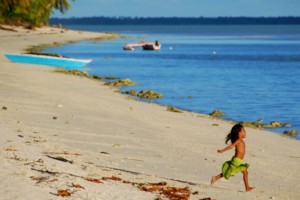As we sit out COVID-19, let’s think about a fair & fail-safe treatment or vaccine for overtourism

During this coronavirus COVID-19 pandemic we are seeing something we have witnessed many times before — the fickleness of travel & tourism demand — exacerbated by enforced travel restrictions.
As governments around the world shut down travel, borders, and gatherings of various sizes to “flatten the curve” of coronavirus contagion and buy time to develop treatments and vaccines, your correspondent wondered what a fail-safe vaccine or treatment for overtourism might look like.
Overtourism is addiction
When everything is going well, travel & tourism does very well.
The phenomenon of “overtourism”, about which there are always lots of complaints, is a symptom of an unhealthy dependence on tourism for jobs and economic activity. We know that, yet this dependence is why little gets done to solve the problem. It is politically and economically difficult to solve because the withdrawal symptoms are rough.
So when something unexpected happens and visitors stop arriving, the withdrawals are even rougher. Many livelihoods suffer. And if visitors stay away for an extended period, which may well be the case with COVID-19, it could be devastating.
Meanwhile, places that don’t depend on tourism do so much better. Fewer residents rely on visitors directly. While there are indirect knock-on effects, of course, one could say those places have better immunity or greater self-reliance. Your correspondent prefers the latter.
Locals understand their priorities better than you do
Fans of “Good news in tourism …” will know that “GT” often highlights travel & tourism industry news items that appear in local media outlets. Your correspondent seeks out stories with positive tourism industry angles that are not the product of trade media release mills. Nor are they (necessarily) related to the travel obsessions of the mainstream media, whose tourism-related items are often preachy and, in any case, already shared by many.
In your correspondent’s opinion often the most interesting and inspiring stories in “Good news …” are those that are community-driven or at least have the host community very much involved alongside governments, NGOs, and/or industry. Here are two examples borrowed from this week’s “Good news …” (to be published tomorrow):
A survey of residents in Whitefish, Montana, USA showed that tourism growth is viewed as negative in relation to housing prices, infrastructure, traffic, and “community character”. The good news is that a new draft tourism management plan by Whitefish City Council “aims to promote sustainable community-based tourism development that will be beneficial to all”. And the public will have the opportunity to comment.
In that story locals collectively predicted a range of potential problems that might arise from tourism growth. And guess what? They all happen to be symptoms of overtourism we have seen elsewhere. The Whitefish City Council best take heed!
In the USA, legislation for the Nature Coast Aquatic Preserve, which encompasses seagrass beds north of Tampa, Florida awaits the signature of state Governor Ron DeSantis. A community petition in support of the legislation stated: “Healthy coastal habitats foster fishing, boating, and tourism [and] support valuable fisheries, seafood production, working waterfronts, and eco-tourism that generate approximately $600 million for the region’s economy annually, provide more than 10,000 jobs, and fuel over 500 businesses”.
In that story, local businesses collectively identified plenty of reasons why conserving natural assets was a good idea. Among their reasons was tourism, of course, as well as many other economic and lifestyle ones that are much more powerful motivators to the locals who live and work in that area than any amount of environmental moralising from outside. Let’s hope the Governor listens!
Having read many of these sorts of stories and taken mental note of the issues and trends that emerge from them, your correspondent has become a fan of community-led destination planning and policy making.
Where residents are given the opportunity to assert their concerns and outline their vision for how tourism fits their place — and politicians and destination managers are held to account — such policy-making will go a long way to solving a host of problems caused (and suffered) by our industry; from avoiding (or relieving) local overtourism, to reducing tourism’s contribution to global climate change.
Your correspondent suspects that the more democratic a destination is, and the livelier its media environment, the more likely it is to yield good social, environmental, and economic outcomes over time.
That sounds eerily like “sustainability”, doesn’t it?
Imagine that!
Tourism must be supply-submissive not demand-driven
To achieve all of this the travel & tourism industry must be reimagined as supply-submissive rather than demand-driven. Every destination’s societal/cultural tolerances, environmental sensitivities, and economic ambitions are unique. Thus every destination’s host community must be honoured and respected; their wishes submitted to.
We must stop thinking of destinations and their constituent parts as undifferentiated products like … toilet paper.
A toilet paper factory is demand-driven. A manager’s primary role is meeting demand as fully and efficiently as possible; scaling up production during an unusually crazed consumer frenzy and then scaling it down again when demand returns to normal.
Tourism destinations are not toilet paper factories. Nor should a destination manager’s role be to reflexively meet rising tourism demand or trendy spikes in demand. Destination residents must always be consulted first.
Destinations are homes.
Answer this: Should homeowners be forced to open guest bedrooms? No. Should homeowners be forced to accept strangers into their backyards? Of course not. As a guest in someone’s home, do you not follow their rules? Of course you do! It’s their place. It’s their space. If you don’t like it, you leave.
Ignore the woo-woo: Host communities must be consulted
Clearly host communities should be given the veto power on any tourism policy that will affect the character of their place. And collectively they might say “no”. Or they might say “yes”. Either way the community will deliver an answer that the powers-that-be must accept and respect even if they don’t like it. (Does that sound familiar, British readers?)
This isn’t your correspondent swiping at authoritarian governments and greedy globalist corporations. Not exclusively, anyway. This is calling out anyone who treats host communities with contempt, including the meddlers and missionaries, ideologues and idio … idealists, who mean well but who can be as much an obstacle to self-determination as the bureaucrats and fat cat capitalists they often claim to despise.
Very few of these individuals — consultants, academics … y’know the type — truly advocate for giving host communities the power to design their destinations and veto tourism policy. After all, host communities aren’t signing their paychecks. If they mention host communities at all it is in passing and sometimes in patronising terms rather than with the respect destination residents deserve …
… as foundation stakeholders who MUST BE CONSULTED!
Frankly, many of these tourism industry “influencers” don’t trust normal people to make “correct” decisions. They are suspicious of normie motivations. So they dream up fluffy philosophies, woo-woo buzz-phrases, and nonsense paradigms that they can take onto the conference circuit and into the offices of destination managers. And they call themselves … “thought leaders” … or at least their disciples and chamber-mates do.
But we digress …
Local knowledge, local democracy, local policy, local planning
Let’s not reinvent the wheel here.
Frequent travellers know that the best knowledge about a destination is local knowledge. So why don’t we apply the same principle to destination planning?
A return to local democracy for local tourism policy and local destination planning would be good news on so many different levels. And it may help avoid, alleviate, and even cure overtourism and many of our industry’s other ailments and impositions.
UNWTO, listen up: If the “leading international organization in the field of tourism” was to focus on one thing — not 27 things! — advocating for the democratisation of local tourism policy should be that thing. And NOW would be the perfect time to think about it.
But what would your correspondent know?
Not a lot. Your correspondent doesn’t define himself as a “thought leader”; merely a humble writer available for hire.
What do you think? Share a short anecdote or comment below. Or write a deeper “GT” Insight. The “Good Tourism” Blog welcomes diversity of opinion and perspective about travel & tourism because travel & tourism is everyone’s business.
And if you find “GT” content inspiring, interesting, somewhat amusing, or at least different then surely it’s worth a coffee or few …
Featured image (top of post): Top image by Geralt (CC0) via Pixabay. Bottom image by Duncan Hull (CC BY 2.0) via Flickr, which “GT” cropped among other things.





